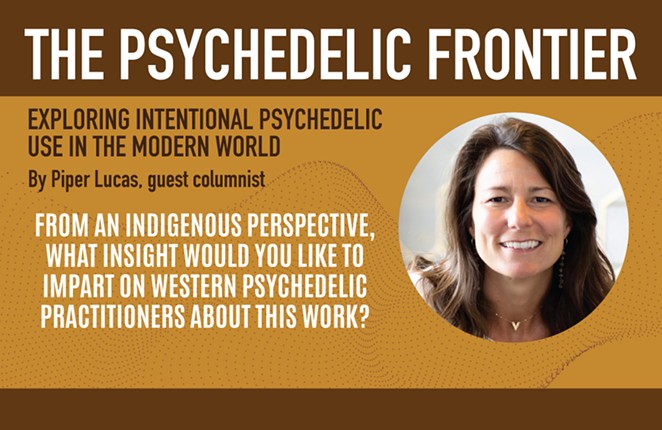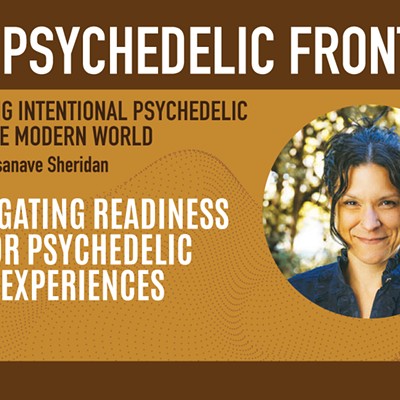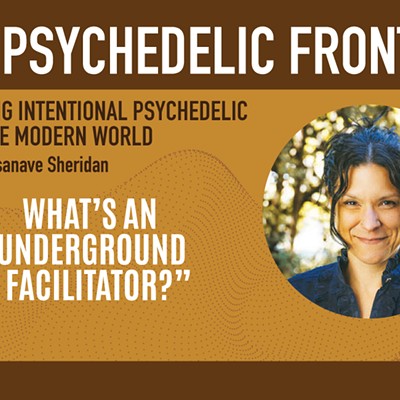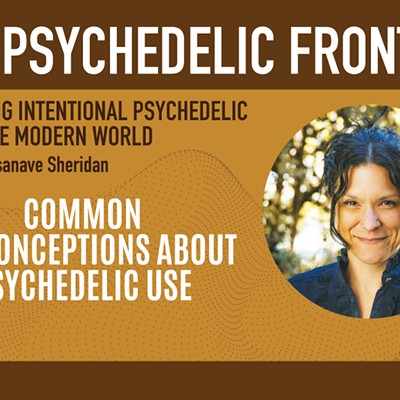My name is Piper Lucas, and I have been learning and growing with different psychedelic plant medicines for more than 17 years. With a background in architecture, my lens has been evaluating how the consciousness of people in altered states is affected by their surroundings. I have studied different indigenous uses of plant medicines for more than a decade and believe that cultures that have been stewarding medicines for thousands of years have developed the best tools for plant-based healing.
In 1957, a wealthy American couple, Valentina and Gordon Wasson, sought "magic mushrooms" in the mushroom's native setting of Huautla, Mexico. The Wassons begged indigenous healer Maria Sabina to serve them, which she did against her community's wishes. LIFE magazine published an article about the Wasson's experience and mushrooms have gained Western interest ever since. Years later, due to the damaging impact of mushroom tourism, Maria Sabina was cast out of her community and died destitute. This was how mushrooms came to our Western culture.
Research over the past 20+ years shows promising results in treatment-resistant depression, end-of-life anxiety and depression, alcohol use disorder and other mental health conditions. But could this healing be more efficacious, safe and sustainable if it were provided in a traditional way, by trained curanderos ("healers" / "shamans") in ceremonial settings? I believe so.
Contrast this with Oregon's facilitator role and training. Most facilitator training programs incorporate little to no indigenous teachings, instead focusing on the Western model of psychedelic-assisted therapy that, excluding a few years in the 1960s, has been practiced for less than two decades. Facilitators graduate from these programs after 160 hours and are not required to apprentice. Compare this to the decades of experience of a shaman who develops a deep understanding of how to work with medicine. By not incorporating traditional teachings and requiring mentorships, we are doing a disservice to our community by using well-meaning but overwhelmingly unprepared facilitators.
Equally concerning is the matter of cultural appropriation. Using anything from an indigenous culture is a minefield exposing you (or our state health authority) to extreme scrutiny and criticism from historically oppressed peoples. As a white-bodied individual, I understand the discomfort the subject brings, and I can understand why the Oregon Health Authority's rules don't reference any of these indigenous practices. But, the rules don't ALLOW these traditions to be practiced.
Lucas C., a trained psychotherapist who works with indigenous medicine carriers from South America, has called Oregon's Psilocybin Services program a repeat of colonialism. "We are taking the plant from its traditional place, and not allowing curanderos who have held this medicine for generations to serve. To receive a license you have to attend a Western school with no traditional experience and pay $10,000 or ask for a meager scholarship. OHA has created a humiliating system for an elder to ask for a grant to be authorized to practice their own culture and then elect to be censored by authorities without any experience."
Karla Diaz Cano works with Dona Eugenia, the granddaughter of Julieta Casmira Estrada, one of the 13 indigenous grandmothers, a group of 13 international women elders who uphold indigenous practices and ceremonies. She said it's hard to see the medicine which has been protected for generations being taken and used out of context.
A few OHA licensed facilitators also have traditional indigenous training. They are challenged by OHA rules to practice ceremony in the traditional way. At the same time, this regulatory way of providing psilocybin is opening the door for people who would not feel comfortable participating in a sacred ceremony. Now there is a door for them.
The number of Americans suffering from mental health issues is soaring. Should we continue to do things the way we have, just with a different "drug"? Maybe we should consider following what other cultures have done safely for generations to help our society heal. Maybe then we can all heal together.




















